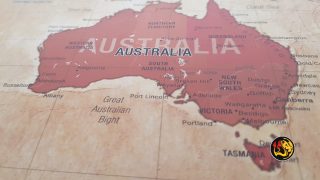
By Stefan J. Bos, Chief International Correspondent Worthy News
CANBERRA (Worthy News) – Australia has begun unleashing a digital revolution to possibly become the world’s first functionally cashless nation by 2025 after a digital identity (ID) document scheme will be rolled out across the country by July, Worthy News learned Tuesday.
Yet not everyone is happy to jump on board the fast-moving digital ‘train’ with residents living outside metropolitan areas and elderly Australians expressing concerns about these developments.
The government argues that the digital ID removes the pain of handing over physical copies of a driver’s license, passport, or birth certificate, making setting up a new bank account easier. The center-left administration of Prime Minister Anthony Albanese claimed that digital ID is a “secure, convenient, voluntary, and inclusive” way for Australians to verify their identity online.
However, critics say a digital ID can result in errors and bias, aggregation of sensitive personal information, hacking and identity fraud, and denial of access to essential services and entitlements.
There is also concern that homeless people, as well as other vulnerable people, including many of the elderly, will be left out of the digital transformation in which the government invested more than half a billion US dollars.
The digital ID is only the first step towards a cashless society. Macquarie Bank, Australia’s 5th largest bank, is officially transitioning to digital payments by November 2024.
Money experts in Australia also warned citizens that banks could start “Cash rationing “at cash dispensers, also known as ATMs. Several other banks soon followed, with Bank Commonwealth, NAB, and ANZ banks stopping handling cash in a few branches and announcing closing more ATMs and branches soon.
LOWER DEMAND
The move will be made because of lower demand for banknotes, bank officials said. “I’d say we’ll be functionally cashless by the end of 2025 — it’ll just be a complete rarity,” said Richard Holden, professor of economics at UNSW Business School at the University of New South Wales in Sydney, Australia.
“But unless the government gets involved in accelerating the process, I think we’ll be actually cashless by 2030,” he stressed, with cash transactions reportedly comprising roughly six percent of the total.
It doesn’t stop there, with at least one prominent bank customer warning Australia’s move towards a digital society will come at the expense of fundamental freedoms.
Crispin Rovere, an Australian poker player and author, expressed his frustrations with Westpac, saying that the bank allegedly froze his accounts without any explanation.
Rovere explained that he deposited winnings from a poker game into his Westpac account, adding that the amount was essentially insignificant. He said it was “way, way under” the $10,000 threshold financial regulators have established as the trigger for suspicious transactions.”
The issue arose when he tried to pay a bill at a hotel with his bank card but was denied. The only reason the bank gave for flagging the account was because the deposit was made in a different state from when he opened it, Rovere said in published remarks. 4
The poker player suggested that Westpac doesn’t believe that its verified customers deserve the flexibility to make deposits anywhere there’s a bank branch. On social media, he warned that the use of cash is now “stigmatized” and could soon be “criminalized” in a nation already embracing digital IDs.
Copyright 1999-2026 Worthy News. This article was originally published on Worthy News and was reproduced with permission.
Latest News from Worthy News
The Trump administration has finalized a sweeping reciprocal trade agreement with Taiwan, confirming a 15 percent U.S. tariff rate on Taiwanese imports while securing broad new market access and purchase commitments for American goods.
Democrats are applauding White House border czar Tom Homan’s Thursday announcement that immigration enforcement operation in Minnesota will end next week.
Democrats in the U.S. Senate tanked the Homeland Security full-year funding bill in a last-ditch vote Thursday, all but guaranteeing a partial government shutdown starting Saturday.
Mourners in a remote Canadian town grappled Thursday with the aftermath of one of the country’s deadliest school shootings in decades, as families, survivors and leaders reacted to the tragedy that left eight victims — most of them children — dead, along with the 18-year-old suspect.
A gunman who opened fire at a school in southern Thailand’s Hat Yai city on Wednesday wounded a teacher and a student before being detained, authorities said, in a rare attack that sent students and staff into panic.
The Republican-led House of Representatives has passed the Safeguard American Voter Eligibility (SAVE) America Act, advancing legislation that would require proof of citizenship to register to vote and photo identification at the polls. The bill now heads to the Senate, where its future remains uncertain amid strong Democratic opposition.
Israel’s Ministry of Defense announced on Wednesday that its advanced David’s Sling air and missile defense system has completed a series of complex modernized tests, a development officials say bolsters the country’s defensive posture as tensions with Iran escalate and the United States prepares military options that could include direct strikes.







